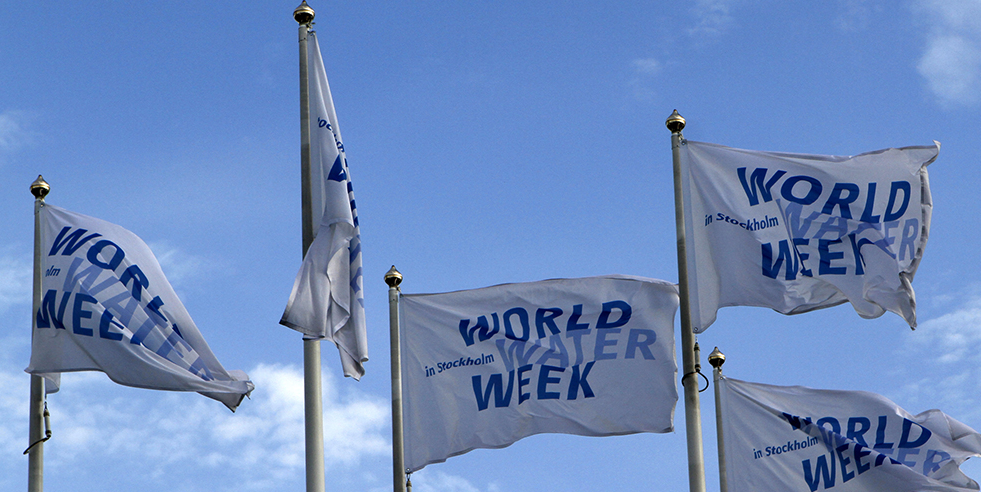World Water Week 2013, which took place in Stockholm from 1-6 September, ended with a call to action for the UN to consider water when establishing the Post-2015 Sustainable Development goals.
This year’s event took place during the UN’s International Year of Water Cooperation, adding extra emphasis on the need for all countries, organisations and industries to collaborate to find realistic and effective solutions for global water security.
The closing Stockholm Statement outlined three suggested goals that the UN should consider to for the post-2015 agenda, these included:
– Doubling of global water productivity: Through stronger and smarter incentives for water use and innovative governance, it is possible to globally double the value from each litre of water used.
– A realisation of the human right to safe drinking water and sanitation: The need for global policies to recognise access to safe drinking water as a basic human right.
– Increased resilience to water related disasters: Wise water management, building on ecosystem-based approaches, is a prerequisite for securing resilience. Integrating water resource management at all levels in the planning, building and governing of our societies will save lives, livelihoods and assets.
Water, Agriculture and Sustainable Irrigation
Integrating water management into all levels of society is particularly important for agriculture, as this will help to underline the use of water in farming, which currently uses 70% of the world’s water resources.
This relationship between water and agriculture was highlighted in a recent Guardian Development discussion on how irrigation methods can be made more efficient and sustainable.
The panel included Rajendra Uperty, agriculture office at the Ministry of Agriculture Development in Nepal; Richard Munang, Africa regional climate change coordinator for the United Nations Environment Programme (UNEP) and Julien Hardelin, agricultural policy analyst for the Organisation for Economic Cooperation and Development (OECD).
Uperty commented that: “Improving irrigation efficiency requires technical solutions at the farm-level, but it is also important to establish long-term strategies and create incentives for farmers and other key stakeholders to value the economic, social and environmental value of water systems.”
The panel then moved on to discuss how farmers in developing countries can gain better access to water and what role corporations can play in ensuring irrigation methods are sustainable and don’t deprive the poorest of vital water resources.
Munang offered an interesting example of how farmers in developing countries are using water sustainably, even in the face of serious water shortages:
“Farmers in Burkina Faso have a pioneered a novel method of conserving water on their farms by digging medium-sized holes called zai (water pockets) in rows across their fields during the dry season. Once each zai fills up with leaves, farmers add manure, attracting termites during the dry months, the termites then create a network of underground tunnels beneath the holes and bring up nutrients from the deeper soils. When the rainy season arrives, rainwater is captures in the zais, which are then sown with seeds.
Since beginning this unusual irrigation method farmers have consistently reported increased yields.”
Despite the success of this method in Burkina Faso Hardelin was keen to point out that there is no “one size fits all” solution, and that successful methods need to be adapted to suit different farming methods and environments.
The discussion came to a close with the panel sharing an initiative they felt would have the most impact for sustainable irrigation over the next ten years.
Herdelin suggested that the sustainability of groundwater resources should be a key priority going forward, as groundwater resources “represent a significant share of total agricultural freshwater withdrawals (above 30%)”.
For more information and all comments from the discussion click here
Water Grand Challenge for Development
One of the biggest outcomes from this year’s World Water Week was the launch of the Water Grand Challenge for Development from USAID and Sida. The programme will see $25 million donated to drive sustainable scientific and technological innovations to improve the use of water around the world, particularly in agriculture.
Dr Rajiv Shah, the administrator of USAID, underlined the relationship between water security and agriculture, saying “water scarcity and its impact on food security affects everyone on the planet. By harnessing the expertise and creativity of the world’s brightest innovators we can tackle this critical challenge with new thinking and partnerships”
World Water Week 2014
The theme for discussions at next years World Water Week will focus on the relationship between water and energy, to find out more about next years event and to watch highlights from World Water Week 2014 visit: http://www.worldwaterweek.org/about



